Antonio Ray Harvey
Taxes on Wealthy Could Fund Reparations, Lawyers Tell Task Force
Two tax planning lawyers shared their perspectives on one of the ways to pay for the racial injustices suffered by Black Californians with the California Task Force to Study and Develop Reparations Proposals for African Americans. At the task force’s last two-day meeting held in San Diego on Jan. 27-28, the estate and tax planning attorneys Raymond “Ray” Odom and Sarah Moore-Johnson proposed several options to the nine-member task force for funding reparations through the federal tax code system — including an estate tax as a means to increase racial equity.
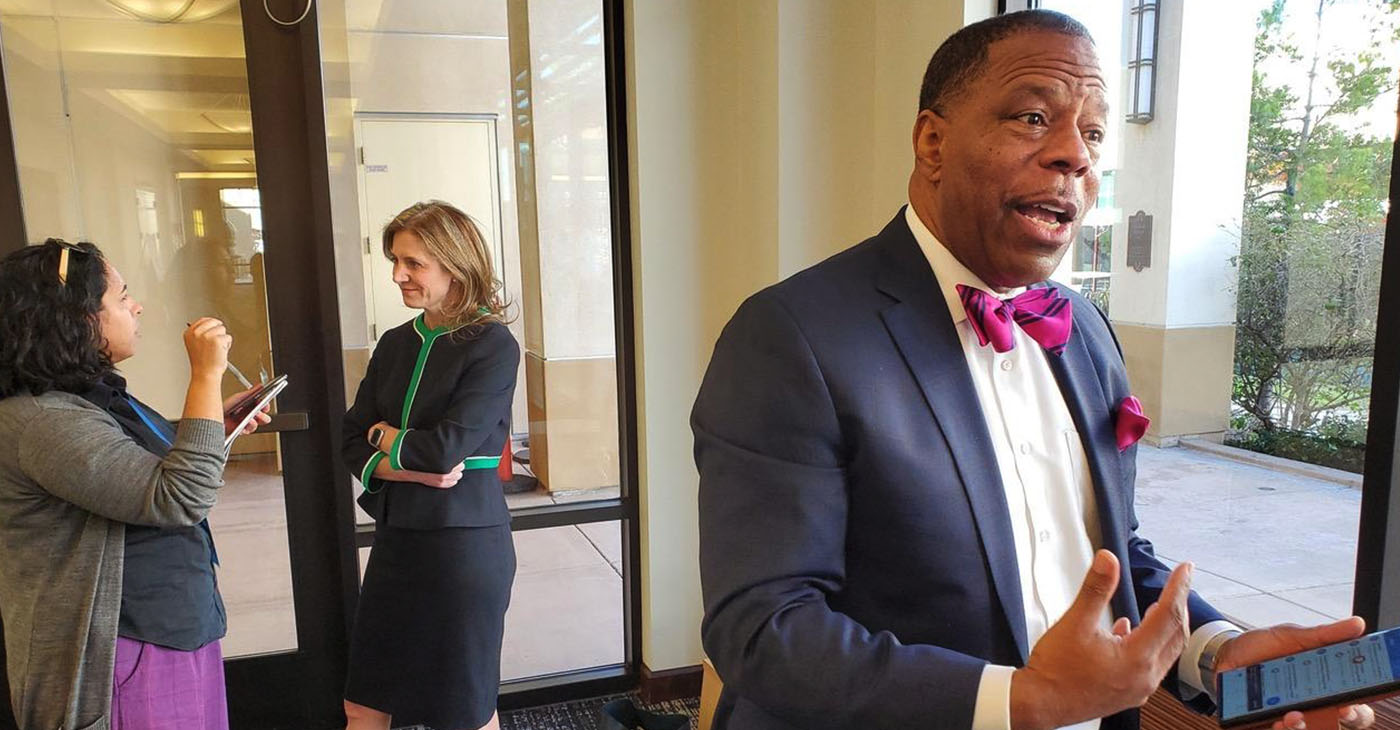
By Antonio Ray Harvey
California Black Media
Two tax planning lawyers shared their perspectives on one of the ways to pay for the racial injustices suffered by Black Californians with the California Task Force to Study and Develop Reparations Proposals for African Americans.
At the task force’s last two-day meeting held in San Diego on Jan. 27-28, the estate and tax planning attorneys Raymond “Ray” Odom and Sarah Moore-Johnson proposed several options to the nine-member task force for funding reparations through the federal tax code system — including an estate tax as a means to increase racial equity.
The tax discussion, held about a month ago, was a lead-in to the task force’s next meeting in Sacramento focused on compensation and titled “Redressing the Harms Delineated in Report 1.”
That meeting will be held over two days, Friday, March 3 and Saturday, March 4 at the Byron Sher Auditorium at the California Environmental Protection Agency (CalEPA) headquarters, beginning at 9 a.m. both days.
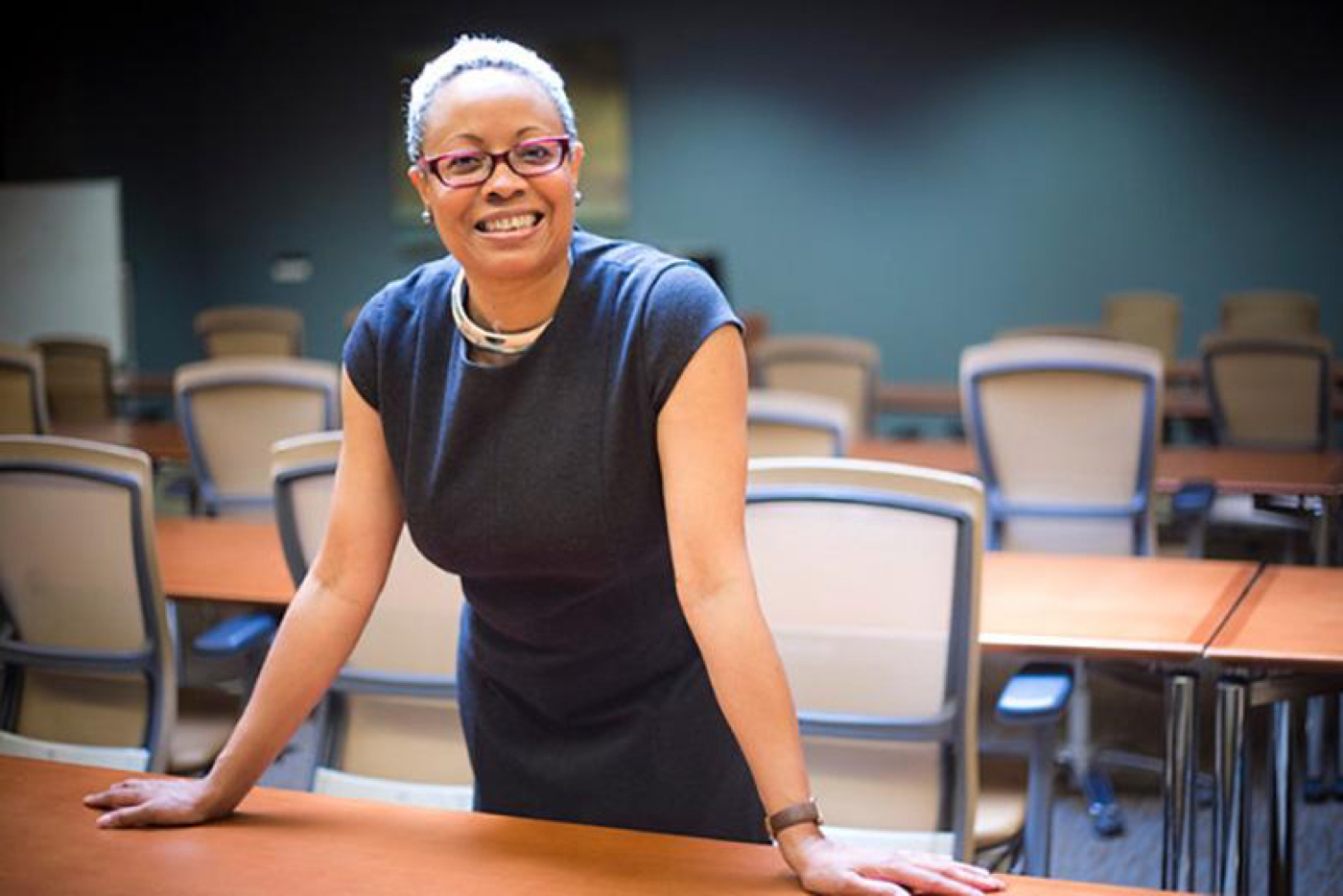
Georgetown Law School tax law professor Dorothy A. Brown offers insight on how the tax code could benefit Black Americans. Photo courtesy of California Black Media.
Moore-Johnson kicked off her presentation at the San Diego meeting during a panel titled “The Forgotten 40 Acres: Repairing Wealth Disparity Using the Estate Tax and New Charitable Incentives.” She said, “the tax code has incentivized white wealth building for years,” and that she and Odom have now found a way to redistribute wealth through tax exemptions at the state level.
“For years, Ray and I intuitively understood that if we could harness those tax incentives to create a public-private partnership to help fund reparations we could get our wealthy clients to willingly enthusiastically embrace using their own money to pay for reparations,” Moore-Johnson said. “We believe that tax deductions should be allowed for private contributions to racial repair because individual taxpayers would be paying a debt of the federal or state government on the government’s behalf,” Moore-Johnson said.
Potential revenue sources, the attorneys say, could be the state estate tax, mansion tax, graduate property tax, and metaverse tax.
Johnson mentioned that the graduate property tax revenue would not apply to California because of Proposition 13, a law that restricts increases in the state tax code.
Odom and Moor-Johnson’s presentation was a condensed introduction to the wealth disparity resulting from chattel slavery and Jim Crow laws and the connection to wealth transfer and wealth taxation.
Odom, however, emphasized that their idea to use the tax code is intentional but it is not a manipulation of the federal tax system.
“I really think that it is so important to set the narrative — and that narrative isn’t around who’s getting something for nothing, but what we are going to do about this gross wealth disparity,” Odom said. “We need to solve this problem for all Americans, but especially for Black Americans.”
Odom — a Chicago estate and tax planning attorney who works at Northern Trust and conducts racial wealth disparity speaking engagements across the country — is a fellow of the American College of Trust and Estate Counsel (ACTEC). He is one of five Black tax attorneys among ACTEC’s 2,500 fellows.
Established in Los Angeles in 1949, ACTEC is a nonprofit association of lawyers and law professors skilled and experienced in the preparations of wills and trusts; estate planning; and probate procedure and management of trusts and estates of the deceased, minors and helpless.
Odom and Moore Johnson explained that the racial wealth gap started to expand in 1981 when Ronald Reagan was in office and the biggest tax cut in history took place. Odom said reparations would be an opportunity to replace “swollen wealth” with the “stolen wealth” of Black people.
Moore-Johnson, an estate planning lawyer, and a founding partner at Birchstone Moore in Washington, D.C., became president of the city’s Estate Planning Council three weeks after George Floyd was murdered in 2020. She is also an ACTEC fellow.
In March of 2021, during a national ACTEC meeting, Odom and Johnson came up with the idea of funding reparations for slavery through the estate tax. They started their research to better understand the history of slavery, post-slavery, reparations, and the wealth gap. Through their research, the duo learned that the racial wealth gap exists, partly, because of the way the federal tax code is set up.
Task force member Sen. Steven Bradford (D-Gardena) stated that the tax attorney’s recommendations provided a “clear road map” to reparations.
“All that said, I think it’s comforting, informative and powerful,” Bradford said after the tax attorneys’ presentation. “As a legislator, the takeaway is, we can afford it. This is a debt that’s owed.”
Dorothy A. Brown addressed the task force by teleconference and shared her views about reparations and the tax code. She is a tax professor at Georgetown Law and the author of the book, “The Whiteness of Wealth: How the Tax System Impoverishes Black Americans and How We Can Fix It.”
Brown’s literature goes to the core of how the complex federal tax system disadvantages the Black community and how it has helped white households secure more solid financial standing.
“Our tax laws as written have a racially disparate impact. Black Americans are less likely to gain access to their tax breaks than their white peers receive,” Brown said. “Therefore, (Black Americans) are more likely to pay higher taxes than their white peers.”
Brown told the task force that she supports a “wealth tax credit applicable to all taxpayers and households,” which would serve the majority of Black people and be available to all “regardless of race and ethnicity.”
“I want to be clear that I’m not providing tax advice or guidance for providing a possible analysis of any reparations payments,” Brown said. “I leave it to your tax council (economic experts) to make a final determination that you would rely upon moving forward.”
Antonio Ray Harvey
Sacramento Lawmakers Step Up Push for “Smart Solutions” on Crime, Public Safety
Assemblymember Tina McKinnor (D-Inglewood) and Sen. Lola Smallwood-Cuevas (D-Ladera Heights), both members of the California Legislative Black Caucus (CLBC), have joined other lawmakers and criminal justice reform advocates to address public safety in the state. On April 2, CLBC members gathered outside the State Capitol for the unveiling of the #SmartSolutions Public Safety Policy Platform, a package of 30 bills that addresses the top concerns of retailers, retail workers, the fentanyl crisis, and support for victims and survivors of crime.
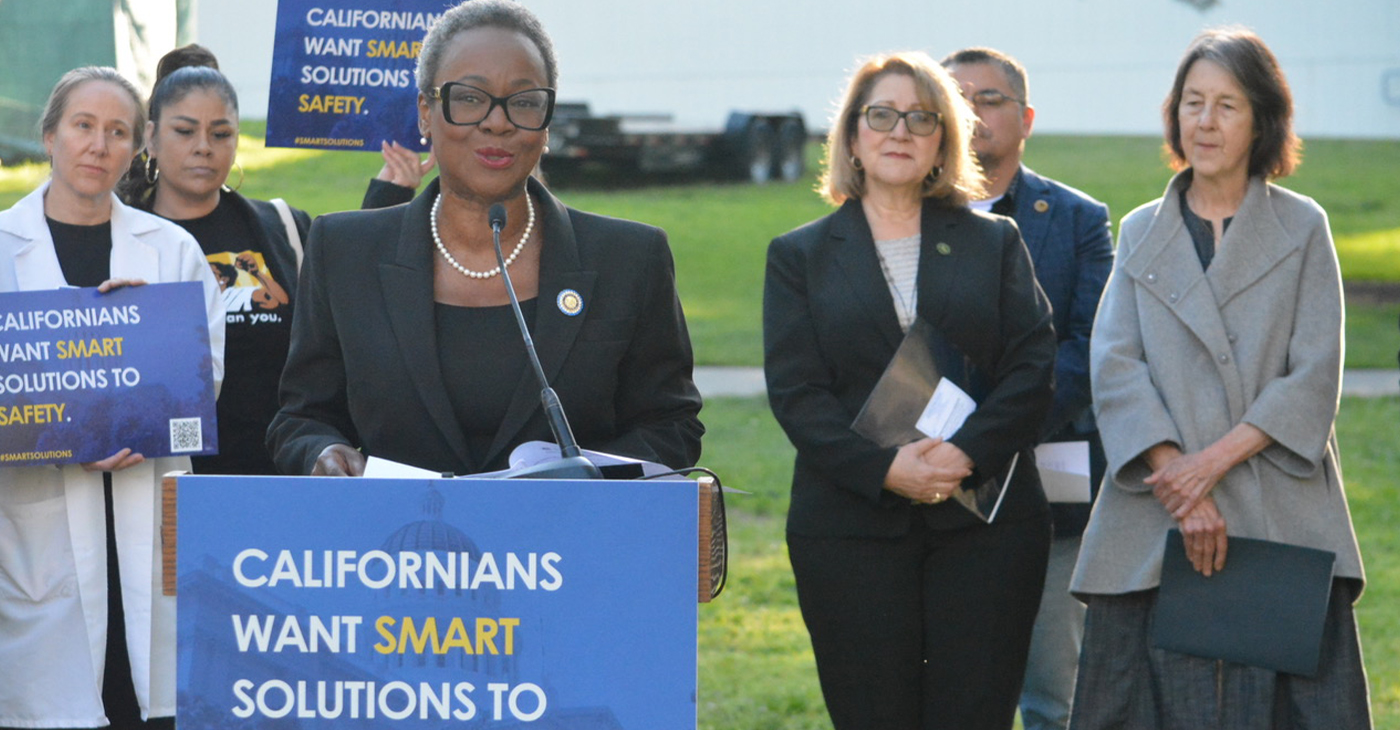
By Antonio Ray Harvey, California Black Media
Assemblymember Tina McKinnor (D-Inglewood) and Sen. Lola Smallwood-Cuevas (D-Ladera Heights), both members of the California Legislative Black Caucus (CLBC), have joined other lawmakers and criminal justice reform advocates to address public safety in the state.
On April 2, CLBC members gathered outside the State Capitol for the unveiling of the #SmartSolutions Public Safety Policy Platform, a package of 30 bills that addresses the top concerns of retailers, retail workers, the fentanyl crisis, and support for victims and survivors of crime.
“Instead of being tough on crime, we need to be smart on crime,” Smallwood said at the press briefing. “I am not saying that we’re not going to be holding folks accountable for the actions that they take. But we will not rely on incarceration as a solution.”
McKinnor, Smallwood-Cuevas, a coalition of advocates, addiction treatment experts, and Yurok Tribal leaders joined Sen. Nancy Skinner (D-Berkeley), and Assemblymember Eloise Gómez Reyes (D-Colton) at the press conference organized to promote legislative solutions that ensure safety and justice.
Organizers say #SmartSolutions is an intersectional campaign that combats criminalization and mass incarceration by pushing for the redirection of state resources to fund housing, health care, schools, services for victims, and programs that reduce recidivism and promote accountability, beyond incarceration.
Opponents of the bills proposed in the #SmartSolutions campaign say their colleagues who support reform-focused strategies are looking the other way on crime and encouraging lawlessness.
For example, Assemblymembers Wendy Carillo (D-Boyle Heights), Carlos Villapudua (D-Stockton) and Mike Gipson (D-Carson) are supporting Assembly Bill (AB) 1990, legislation that would allow a peace officer to arrest shoplifters without a warrant or without witnessing the theft.
Assemblymember James Ramos (D-Highland) authored AB 1772 and introduced it in January. The legislation proposes sterner penalties for retail theft, particularly for repeat offenders.
The #SmartSolutions campaign is co-sponsored by Ella Baker Center for Human Rights, Smart Justice California, American Civil Liberties Union (ACLU) California Action, Californians for Safety and Justice, and Californians United for a Responsible Budget (CURB).
Smallwood recently introduced two bills she hopes will provide solutions to the escalating retail theft problem in the state. Senate Bill (SB) 1446 addresses theft, technology and job security in retail establishments and aims to minimize workplace violence, according to supporters. SB 1282 requires counties to expand the use of a diversion program for theft cases.
“Restorative Justice is the essential pillar of making our criminal justice system more fair, just, and equitable,” McKinnor said. “Restorative justice recognizes the trauma of victims and preparatory of crimes and provides a constructive space for victims to find healing.”
Dr. Amiee Moulin, founder of the California Bridge program and chief of the Division of Addiction Medicine at the University of California (UC) Medical Center, said drug “addiction and overdose” are taking a toll on patients, families and the community.
“I believe that California’s proposed legislation focused on expanding access to treatment is a crucial step towards saving lives,” Moulin said. “By removing barriers to care and embracing evidenced-based strategies we can provide patients the support they need to heal and recover.”
Antonio Ray Harvey
Advocates Weigh in on Calif. Black Caucus Reparations Package
On Feb. 21, the California Legislative Black Caucus (CLBC) held a press conference at the state Capitol to introduce a package of reparations legislation the lawmakers call “a starting point” to atone for the state’s legacy of discrimination. All 12 members of the CLBC were present to explain their efforts to rectify the damages caused by systemic discrimination against Black Californians detailed in the 1,100-page report by the first-in-the-nation California reparations task force.
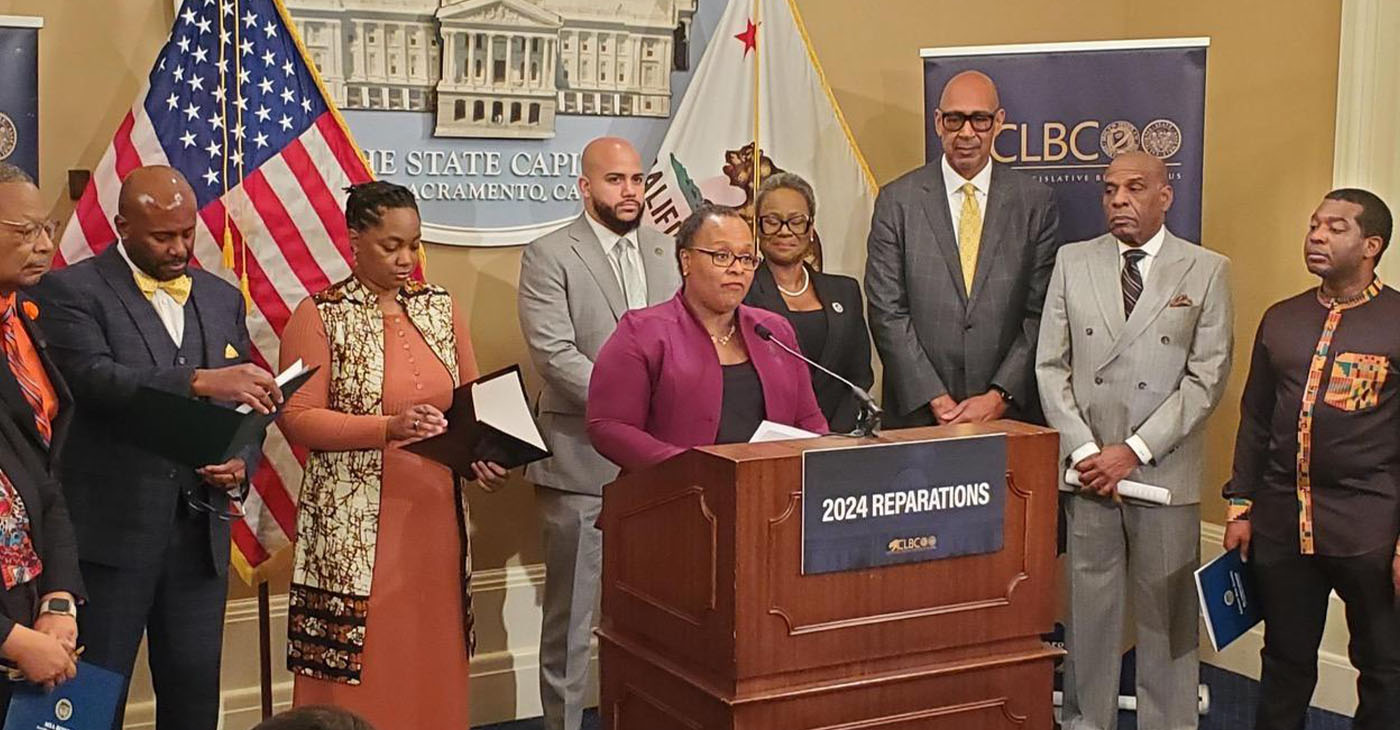
By Antonio Ray Harvey
California Black Media
On Feb. 21, the California Legislative Black Caucus (CLBC) held a press conference at the state Capitol to introduce a package of reparations legislation the lawmakers call “a starting point” to atone for the state’s legacy of discrimination.
All 12 members of the CLBC were present to explain their efforts to rectify the damages caused by systemic discrimination against Black Californians detailed in the 1,100-page report by the first-in-the-nation California reparations task force.
The nine-member panel submitted the recommendations on June 28, 2023.
CLBC chairperson Lori Wilson (D-Suisun City) said it may take three to seven years to pass legislation aimed at implementing the task force’s recommendations.
The package the CLBC members presented consists of 14 legislative proposals, each designed to address different aspects of systemic racism and inequality.
One proposal, Senate Bill (SB) 490, put forth by CLBC Vice Chair Sen. Steven Bradford (D-Inglewood), calls for the establishment of the California American Freedmen Affairs Agency (CAFAA).
This agency would administer reparations programs and aid Black families researching their family lineage. The cost of implementing such an agency has not yet been estimated, but reparations advocates say its creation signifies a step toward acknowledging and rectifying past injustices.
Another proposal by Assemblymember Cory Jackson (D-Riverside), ACA 7, seeks to amend Prop 209, the initiative passed by voters in 1996 that prohibits considering race, color, sex, or nationality in public employment, education, and contracting decisions.
This amendment would allow the governor to approve exceptions to the law in order to address poverty and improve educational outcomes for African Americans and other marginalized groups.
Bradford also discussed proposal legislation aimed at compensating families whose properties were seized through eminent domain as a result of racism and discrimination.
The package of bills includes a measure proposed by Assemblymember Reggie Jones Sawyer (D-Los Angeles), Assembly Bill (AB) 3089 to formally acknowledge California’s history of slavery and discrimination, requiring lawmakers to issue a formal apology.
Additionally, a proposed constitutional amendment, ACA 8, sponsored by Wilson aims to ban involuntary servitude, particularly within the state’s prison system.
Reparations advocates and social justice groups from statewide organizations shared their support and criticism of the 14-bill reparations package with California Black Media (CBM).
A Coalition for a Just and Equitable California (CJEC) stated that the CLBC’s package does not address direct-cash payment, which, for that group’s leadership, is a non-negotiable component of any proposed compensation package.
“Our coalition’s unwavering commitment has been to pursue lineage-based reparations, encompassing direct monetary payments/compensation, state recognition of descendants as a protected class, and the establishment of the California American Freedman Affairs Agency through Senate Bill (SB) 490,” CJEC member Chris Lodgson outlined in a statement.
Lodgson continued, “We believe these vital components are imperative and a necessary first step toward true reparations. As we’ve communicated to elected officials directly for some time, we believe any reparations package must be targeted explicitly and exclusively to California’s 2 million Black American descendants of persons enslaved in the U.S. (American Freedmen).”
Media present at the news briefing persistently questioned Wilson and other CLBC members about direct payments.
Wilson mentioned that the budget deficit California is currently facing is being considered in discussions about compensation. A Legislative Analyst’s Office report released Feb. 20, estimates that the state’s budget shortfall could expand to $73 billion by May.
“In regard to direct-cash payments to individuals, we will continue to have that discussion as we navigate the next few years,” Wilson said. “As noted, we’re halfway through a legislative session. We have about three months of the legislative process in each house (Senate and Assembly) to work through these existing bills.
“In the next session, we have two years, and during that two-year session, we will consider including additional payments whether they are direct-cash payments or direct payments to communities,” Wilson said.
The Alliance for Reparations, Reconciliation, and Truth (ARRT), a collaboration of California’s leading Black power-building and justice groups, supports seven of CLBC’s 14 reparations bills with proposals that include the restoration of property, establishing the property tax assistance for Descendants of Enslaved Persons program, a formal apology for human rights violations and crimes against humanity, amending the California Constitution to prohibit involuntary servitude for incarcerated persons, and prohibiting discrimination based on natural and protective hairstyles.
“The California Legislative Black Caucus reparations package marks a historic and meaningful moment in time. ARRT encourages lawmakers to pursue an even more expansive and definitive action to fulfill the reparations principles as recognized by the United Nations,” stated James Woodson, AART co-founder and executive director of the California Black Power Network. “Reparative justice must be impactful, transformative, and enduring, thus paving the way toward atoning for the wrongdoings deeply imprinted in the state’s history and healing this democracy.”
ARRT is a collaboration between the Black Equity Collective, the California Black Power Network, Catalyst California, Equal Justice Society, and Live Free USA, Live Free California.
Former members of the California reparations task force have partnered with AART: Loyola-Marymount clinical psychologist professor Dr. Cheryl Grills; Oakland-based civil rights attorney Lisa Holder; Dr. Jovan Scott Lewis, chair of the Department of Geography at the University of California Berkeley and Oakland-based attorney Donald Tamaki.
“We absolutely are (in support of direct-cash payments),” Woodson told California Black Media. “I think we got to have it all. There were multiple harms that were caused and one of them was financial and that needs to be compensated for with cash payments. And there are also systemic harms that were created. We need to change laws. We need to change how rules work because a lot of it flows out of anti-Black racism. We have to have everything because if you leave anything out it’s not for reparations.”
CBM also learned that there will be a series of listening sessions with the CLBC to help educate Californians about the reparation bills and the workings of the legislative process.
The members of the CLBC are Assemblymember Lori D. Wilson (D-Suisun City); Sen. Steven Bradford (D-Inglewood); Assemblymember Akilah Weber (D-La Mesa); Assemblymember Isaac Bryan (D-Los Angeles); Assemblymember Mia Bonta (D-Alameda); Assemblymember Chris Holden (D-Pasadena); Assemblymember Mike Gipson (D-Carson); Assemblymember Corey Jackson (D-Riverside); Assemblymember Reggie Jones-Sawyer (D- Los Angeles); Assemblymember Tina McKinnor (D-Inglewood); and Sen. Lola Smallwood-Cuevas (D-Los Angeles).
Antonio Ray Harvey
Controller Malia Cohen: Despite $68 Billion Deficit, California Has Enough Cash to Pay Bills
Over the next few months, Californians will spend time processing the details of Governor Gavin Newsom’s 2024-2025 spending plan, which he is expected to present to the Legislature on Jan. 10 in Sacramento. However, reports of the state’s whopping $68 billion budget deficit — as projected by the nonpartisan Legislative Analyst’s Office (LAO) — have foreshadowed the Governor’s announcement with uncertainty.
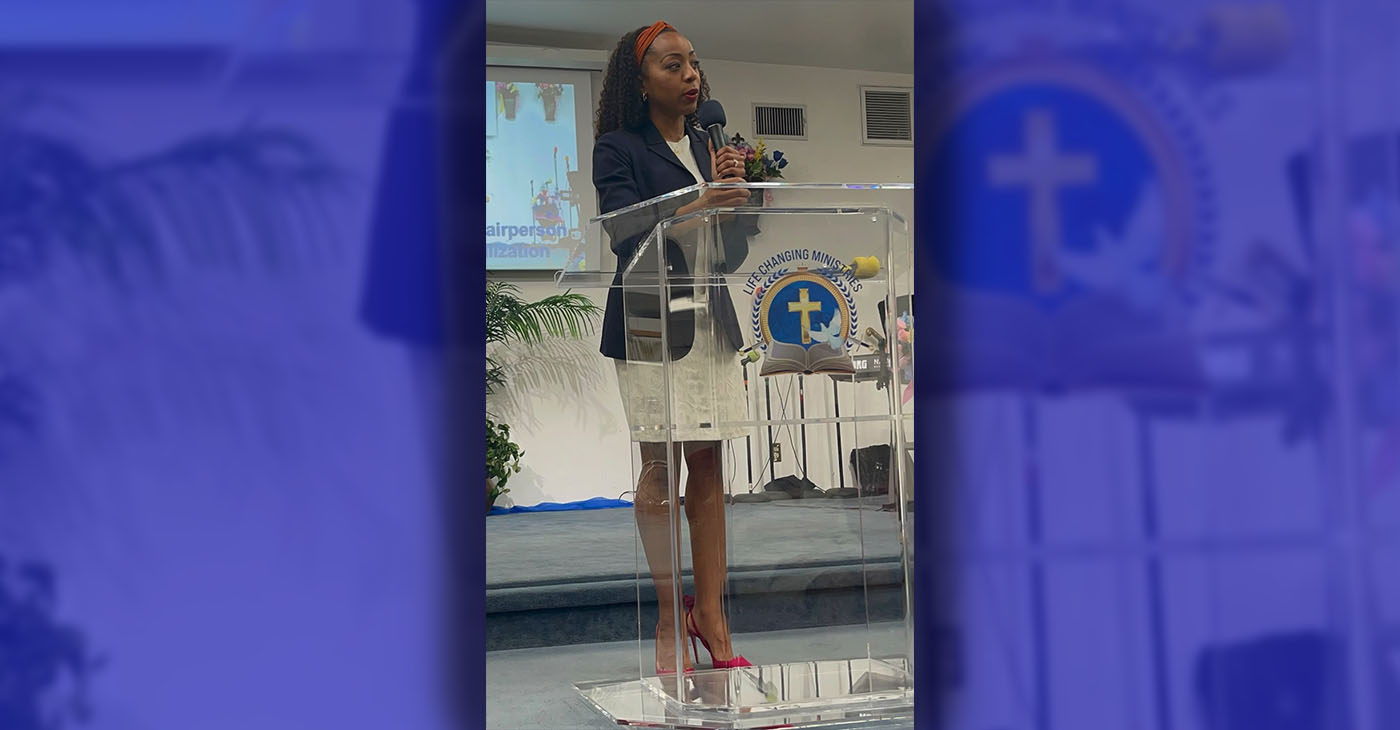
Antonio Ray Harvey
California Black Media
Over the next few months, Californians will spend time processing the details of Governor Gavin Newsom’s 2024-2025 spending plan, which he is expected to present to the Legislature on Jan. 10 in Sacramento. However, reports of the state’s whopping $68 billion budget deficit — as projected by the nonpartisan Legislative Analyst’s Office (LAO) — have foreshadowed the Governor’s announcement with uncertainty.
Despite anticipation of deep budget cuts, State Controller Malia M. Cohen has expressed confidence that California’s fiscal cash flow is in the position to withstand any financial challenges caused by forecasted economic downturn.
“Despite reports from various sources indicating a budgetary deficit of approximately $68 billion, the state’s cash position remains strong, and, absent any unforeseen circumstances, the state has sufficient cash to pay its bills and meet its financial obligations through the end of the fiscal year,” Cohen said in a Dec. 19, 2023, letter.
Cohen is responsible for accountability and disbursement of the state’s financial resources. She has independent auditing authority over government agencies that spend state funds.
According to the LAO, the budget shortfall increased by $53 billion when compared to the projections used in the development of the current year budget – up from $15 billion when the 2023–24 Budget was signed in June. The LAO faced challenges in providing budget estimates due the IRS delaying tax filings until Nov. 16, 2023.
Regarding personal income, sales and property tax revenues, the state’s primary revenues, California entered an economic downturn in 2022 that is affecting the budget.
On Dec. 15, Senate Minority Leader Brian W. Jones (R-San Diego) and Senate Budget Vice Chair Roger Niello (R-Fair Oaks) wrote a letter to Gov. Newsom, urging him to “act early” to address the state’s worsening fiscal condition.
“This budget deficit will impact every California resident and doesn’t matter whether you’re a Republican or Democrat,” Jones stated. “That’s why we must roll up our sleeves and work together to bring spending in line with revenues.”
Cohen has been monitoring the state’s financial reports and clarified California is protected by its “rainy day reserves.”
“The state currently has more than $91.4 billion in available borrowable resources, due in large part to the Governor’s and Legislature’s foresight in building prudent rainy-day reserves in the Budget Stabilization Account,” Cohen stated.
The budget negotiations will involve new leaders of the legislature — Assembly Speaker Robert Rivas (D-Salinas) and incoming Senate President Pro tempore Mike McGuire (D-Santa Rosa).
Rivas added California Legislative Black Caucus members Assemblymember Dr. Akilah Weber (D-La Mesa and Assemblymember Corey Jackson (D-Moreno Valley) to the Assembly’s budget leadership team in December. Weber will lead Subcommittee 1 on Health while Jackson will guide Subcommittee 2 on Human Services.
“While legislators will have difficult choices to make in the new year, I am confident they will be deliberate in addressing the budget challenges before them, and I urge them to protect, to the extent possible, the health and social service programs designed to benefit those who are displaced, without shelter, or otherwise economically disadvantaged,” Cohen stated.
-

 Community2 weeks ago
Community2 weeks agoFinancial Assistance Bill for Descendants of Enslaved Persons to Help Them Purchase, Own, or Maintain a Home
-

 Activism4 weeks ago
Activism4 weeks agoOakland Post: Week of April 3 – 6, 2024
-

 Business2 weeks ago
Business2 weeks agoV.P. Kamala Harris: Americans With Criminal Records Will Soon Be Eligible for SBA Loans
-

 Community2 weeks ago
Community2 weeks agoAG Bonta Says Oakland School Leaders Should Comply with State Laws to Avoid ‘Disparate Harm’ When Closing or Merging Schools
-

 Activism3 weeks ago
Activism3 weeks agoOakland Post: Week of April 10 – 16, 2024
-

 Community2 weeks ago
Community2 weeks agoOakland WNBA Player to be Inducted Into Hall of Fame
-

 Community2 weeks ago
Community2 weeks agoRichmond Nonprofit Helps Ex-Felons Get Back on Their Feet
-

 Community2 weeks ago
Community2 weeks agoRPAL to Rename Technology Center for Retired Police Captain Arthur Lee Johnson





















































